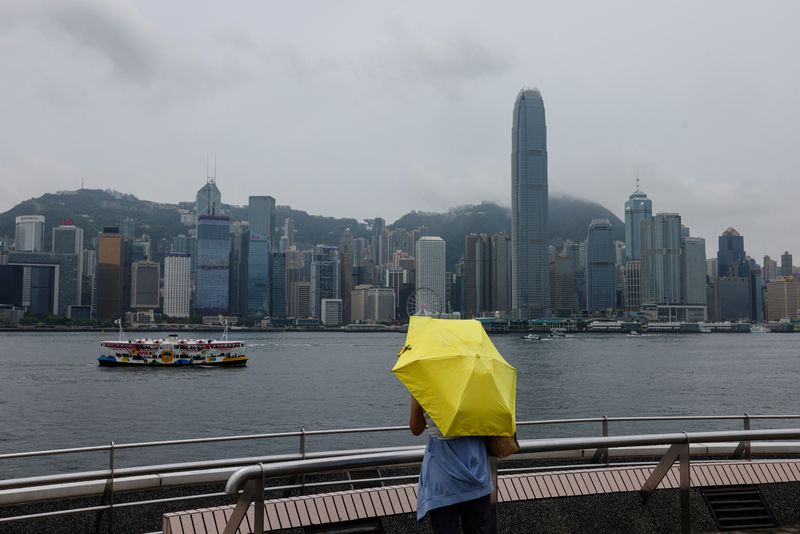By Twinnie Siu and Donny Kwok
HONG KONG (Reuters) -Hong Kong's economy grew 1.5% in the second quarter from a year ago, slowing from 2.9% in the first quarter as demand for exports weakened and investment spending fell, official seasonally-adjusted data showed on Friday.
The second quarter figure was the same as preliminary estimate made in July, when the first quarter figure was revised.
Hong Kong has now posted two consecutive quarters of growth but is expanding more slowly than the 3.6% year-on-year forecast by economists polled by Reuters.
The government has revised its growth forecast for this year to 4.0% to 5.0% from a range of 3.5-5.5% earlier.
The economy shrank 3.5% in 2022.
Adolph Leung, a government economist said in a statement that the difficult global economic environment would continue to weigh on exports, but "inbound tourism and private consumption will remain the major drivers of economic growth for the rest of the year."
"Improved labour market conditions and the government's various measures that boost the momentum of the recovery will provide additional support to private consumption," Leung said, while noting that financial conditions remained tight.
Boosted by travel from the mainland and Southeast Asia, preliminary visitor arrivals for July increased 31% from June to 3.6 million.
"Hong Kong's tourism industry is recovering gradually," said Dane Cheng, executive director of the Hong Kong Tourism Board (HKTB). The city saw more than 16 million visitors for the first seven months of 2023, according to HKTB.
On a quarterly basis, the economy shrank 1.3% in the second quarter, the biggest contraction since the third quarter of 2022 when it shrank 2.5%.
Hong Kong's economy grew 5.4% in the March quarter over the previous quarter.
A challenging external environment may bring downside risks for Hong Kong with exports continuing to be under pressure amid weak demand from mainland China and globally, said Samuel Tse, an economist at DBS Bank.

"A high interest rate environment is also negatively affecting investment sentiment, particularly in the property sector," Tse added.
Hong Kong lowered its full-year underlying consumer price inflation forecast to 2.0% from 2.5%, and lowered its forecast for the headline rate to 2.4% from 2.9%.